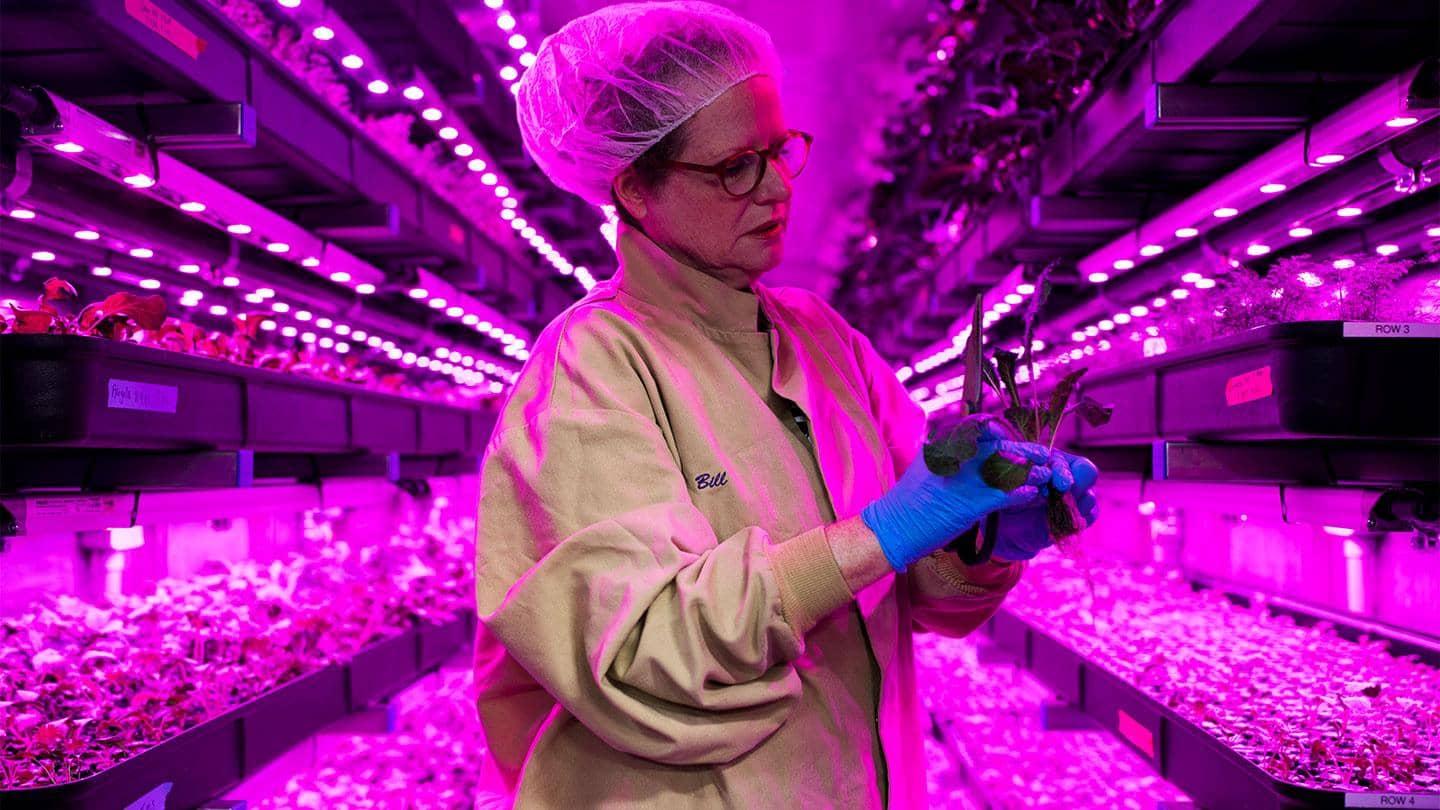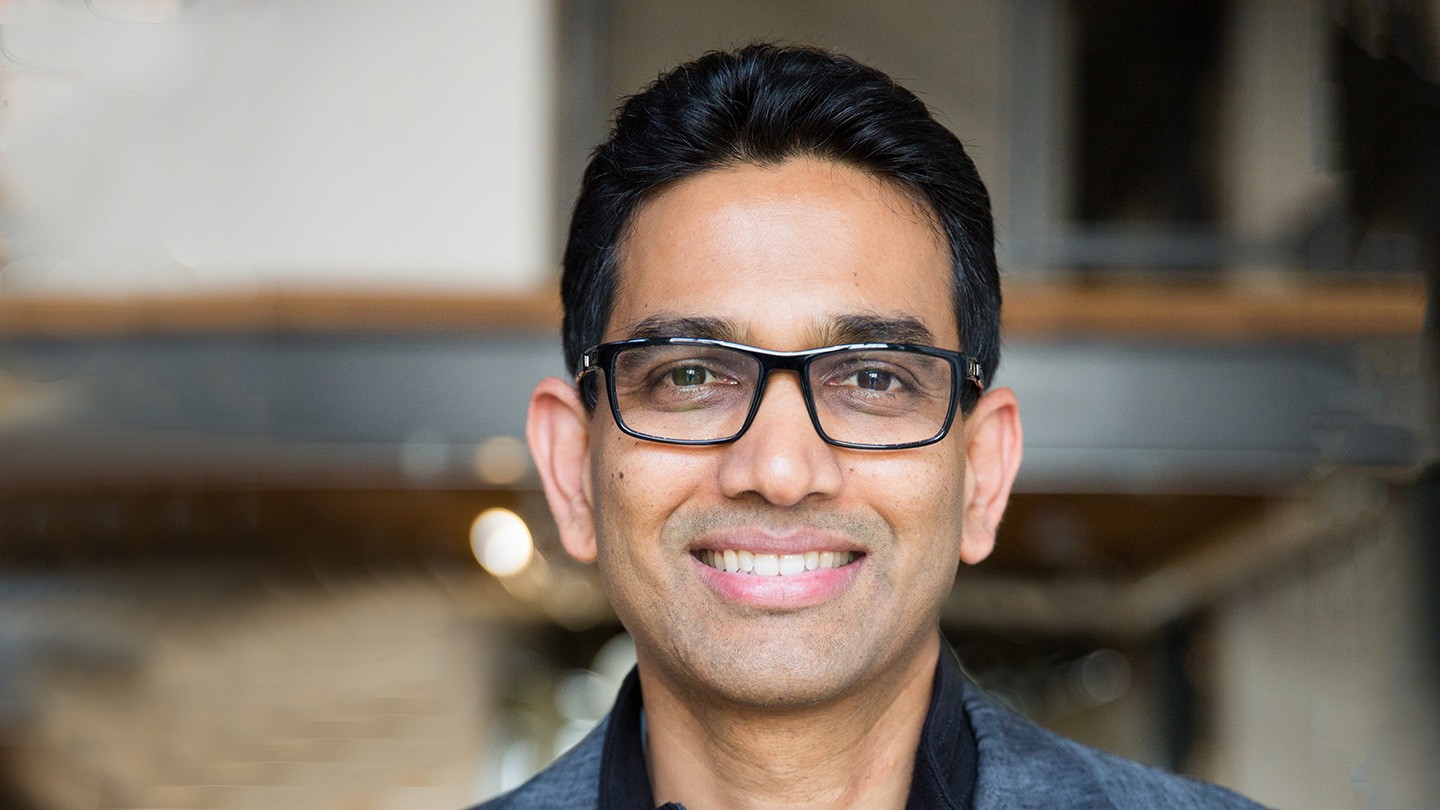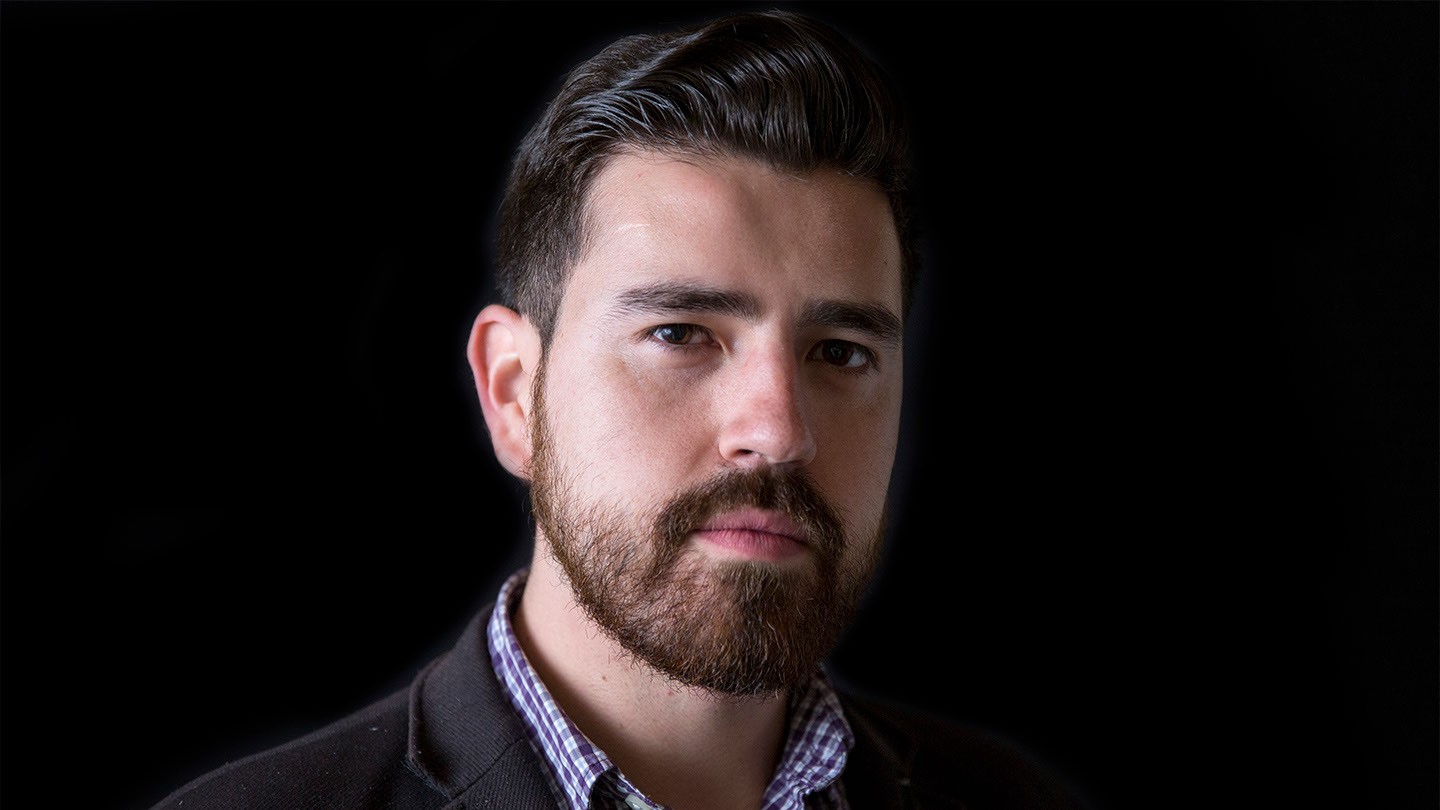
Growth
The future of food
The problem of how to feed a growing global population is far from new. But the pandemic has served to highlight challenges around food sustainability, food security and food poverty. The companies supported by Barclays’ Unreasonable Impact programme are trying to address those challenges. In the first in a new series, we look at how they’re innovating the future of food.
The way we shop, cook and eat is shifting dramatically, with increasing numbers of people, for example, changing from meat to other forms of protein. According to the United Nations, though, we need to adapt still further, ramping up our food production to feed the 9.7 billion people who will be on the planet by 2050. The pandemic has only served to remind us of the huge impact changes to the food supply can have on our lives.
Water shortages, lack of land and a changing climate mean that new technologies are needed to help us hit these targets. At Barclays, the Unreasonable Impact programme, formed in partnership between the bank and the Unreasonable Group to help entrepreneurs tackle the world’s greatest challenges, is supporting the entrepreneurs behind a new generation of companies, many of which are working to improve the way we feed the world’s growing population.
The programme offers resources, mentorship and a global network to the innovative farmers, scientists and food developers who are at the forefront of new developments. Here are some of the things they are doing.

Edible insects
Two billion people across the world already eat insects, and there are many advantages to using bugs as a source of food. Insect farms need little space, and producing them emits fewer greenhouse gases than conventional farming. They can even eat waste – an attribute that Entocycle, a 2018 graduate of the Unreasonable Impact UK and Europe programme, is using to full advantage.
Nature has spent 150 million years perfecting how to feed animals and it’s called insects.
Founder, Entocycle
Entocycle’s insect farm – thought to be the largest in the UK – is in Bermondsey, in the very heart of London. The company farms black soldier flies, which Founder Keiran Whitaker describes as “nature’s perfect upcycling machine”. Fed on brewers’ grains and coffee grounds that are a by-product of the craft beer and artisan coffee boom, the insects convert the waste into protein. The larvae grow from the size of a grain of sand to an inch-long protein source in just one week and, when ground into flour, offer an alternative to soy or fishmeal animal feed.
Whitaker, a former scuba diving instructor, was inspired to start the Entocycle after seeing the havoc wreaked on the natural world in order to create protein for animals to eat.
“Nature has spent 150 million years perfecting how to feed animals and it’s called insects,” he says. His mission is to develop the technology to “enable organisations around the world to realise the full potential of insects as nutritious and sustainable food and feed for animals”. In the future, he believes that the larvae flour could also be pressed into protein bars to feed people.
It was announced in in late 2020 that the UK government has invested £10m in the country’s first industrial-scale insect farm, to be run by Entocycle, with plans to breed up to five million black soldier fly larvae as protein for animal food. The project is also backed by the supermarket group Tesco.
Meat alternatives
Global meat consumption is rising, but so is the desire to find alternatives that are just as satisfying, without the environmental impact. Today, the market for proteins positioned as meat alternatives – such as Quorn – is worth US $14bn, or 1% of the global meat market.
Notable successes in this area include Beyond Meat, which listed globally in May 2019, and was at the time valued at nearly US $1.5bn. The group makes a range of plant-based products, including a burger that is sold at Whole Foods and restaurant chains including Byron.
Almost everyone in the world would love to see meat come to the table without the animals or the health risks associated with how the animals are raised or the enormous environmental impact.
Co-Founder, UPSIDE Foods

Uma Valeti is the Co-Founder of UPSIDE Foods, which aims to make meat products healthier, safer, and better for the planet.
Barclays analysts believe the market for alternative meat will grow tenfold within the next 10 years, to US $140bn globally, with cultured meat becoming available in the supermarket. One forerunner is UPSIDE Foods, a 2017 graduate of the Unreasonable Impact Americas programme, which grows meat from cells in a lab in four to six weeks. The company raised US $186m in early 2020.
“Almost everyone in the world would love to see meat come to the table without the animals or the health risks associated with how the animals are raised or the enormous environmental impact,” says Uma Valeti, the company’s CEO and Co-Founder.
At the end of UPSIDE Foods' process, Valeti says, the meat tastes the same and is cooked the same as the meat from an animal: "UPSIDE Foods has done hundreds of tastings, and everybody immediately recognises our products as delicious meat." The company aims to keep the benefits of conventionally produced meat while making meat products healthier, safer, and better for the planet.
Clara Foods, in San Francisco – another Unreasonable Impact company which graduated from the Americas programme in 2017 – is dedicated to making animal protein without animals. Clara designs yeast to contain the same proteins found in popular foodstuffs, producing animal-free proteins that use less land and water, but taste the same as ordinary food. Clara’s Founder, Arturo Elizondo was named 2019 NHI (National Hispanic Institute) Person of the Year, to Forbes ‘30 Under 30’, and was declared a Green Biz ‘30 Under 30’ sustainability leader.

Arturo Elizondo’s company Clara Foods is dedicated to making animal protein without animals.
This technology brings us one step closer to converting the factory farms and slaughterhouses of today into the breweries of tomorrow.
Founder, Clara Foods
Elizondo says the technology he is using – creating protein from fermentation – has been around since the 1980s, when it was used to create insulin that had previously been created from the stomachs of pigs. In the 1990s, it was used to create vegetarian cheese, removing the need for the slaughter of cows.
The company’s chicken-free egg protein brings us “one step closer to converting the factory farms and slaughterhouses of today into the breweries of tomorrow,” he says.
Growing more with less
80 Acres Farms, a 2019 graduate from the Unreasonable Impact Americas programme, works on finding solutions to the amount of space needed to grow food for a growing population – while making a positive impact on the planet.
The US company’s approach is to convert urban spaces into eco-friendly indoor farms located near customers, growing leafy greens, tomatoes, cucumbers, microgreens and herbs, with plans to add soft fruit in the near future. Founder Mike Zelkind says he aims to grow produce “as near to the place of consumption as possible” to avoid issues with flavour, freshness, and nutrition associated with food miles.
In December 2018, 80 Acres Farms created the first fully automated indoor farm that optimises every aspect of growing produce indoors, including seeding, growing, and harvesting. It uses robotics, artificial intelligence, data analytics, and around-the-clock monitoring sensors and control systems to produce the freshest, most nutritious food possible. In 2020, the company raised another round of funding to accelerate growth in this automated vertical farming technology, opening a new facility in Ohio that will deliver 10 million servings in its first year. This investment was led by Barclays Sustainable Impact Capital programme, which will make £175m in principal investments over the next five years into sustainability-focused start-ups to accelerate clients’ transition to net zero emissions.
Zelkind, who describes the US food system as “broken”, says 80 Acres accelerated their mission when the pandemic hit, throwing food poverty and food insecurity into sharp relief.
With the help of a grant from the Unreasonable Impact COVID-19 Response initiative, 80 Acres Farms has been able to help get fresh, healthy food to those that need it most, including curb-side programmes delivering fruit and vegetables to low-income communities; a programme to feed frontline workers; and finding ways to support those working in the food industry through lockdown.